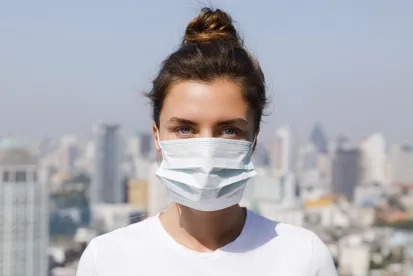The Centers for Disease Control and Prevention (CDC) is urging individuals to refrain from traveling for the Thanksgiving holiday, as many states and communities in the U.S. have begun to enact additional control measures in the face of rising case rates. With promising vaccines from both Moderna and Pfizer on the table, the Food and Drug Administration (FDA) is expected to decide on vaccine authorizations in early December.
Remdesivir
In May, the FDA approved the emergency use authorization (EUA) of Remdesivir. Last month, FDA approved the drug to be used to treat COVID-19 patients. A study released two weeks ago showed the antiviral drug shortens the recovery in hospitalized adult patients, compared to a placebo group. However, Thursday, the World Health Organization (WHO) released guidelines noting, “the antiviral drug remdesivir is not suggested for patients admitted to hospital with COVID-19, regardless of how severely ill they are, because there is currently no evidence that it improves survival or the need for ventilation.” Meanwhile, this week, FDA approved an EUA combo treatment of remdesivir with Eli Lilly and Company’s barictinbib, a rheumatoid arthritis drug.
Vaccine Developments
This week, both Moderna and Pfizer announced their COVID-19 vaccines have nearly 95% effectiveness in preventing COVID-19 infection and that they will seek EUAs from the FDA. The FDA is expected to decide on vaccine authorizations in early December, when the agency’s independent vaccine advisory group meets. The advisory board provides FDA with recommendations, which FDA can either accept or reject. Pfizer’s vaccine has been found to be 95% effective across age, racial, and ethnic demographics.
GAO Tells FDA To Be More Transparent on EUAs
As required in the CARES Act, the Government Accountability Office (GAO) issues periodic oversight reports related to federal COVID-19 efforts and activities. This week, GAO released a report noting the importance of the FDA identifying ways to uniformly disclose information in support of the issuance of an EUA to the public. The FDA immediately responded to this call for transparency with a statement.
Thanksgiving, Governor Orders and Additional Control Measures
With cases rising and the holiday season around the corner, the CDC urges individuals to refrain from traveling for Thanksgiving, especially for those who have not lived in the same household for the past 14 days. Many governors have issued travel advisories instructing visitors or returners to self-quarantine for 14 days. This comes as many states and local communities in the U.S. enact additional pandemic control measures such as curfews, reversing phased reopening plans, closing non-essential business, reducing capacity, closing schools, etc.
First FDA-Authorized Prescription At-Home Coronavirus Test
Lucira Health developed a COVID-19 at-home test that was authorized to be used by the FDA this week. Results must be reported to the state health department by the health care provider. “While COVID-19 diagnostic tests have been authorized for at-home collection, this is the first that can be fully self-administered and provide results at home,” FDA Commissioner Stephen Hahn said. Per Lucira’s website, the test should cost less than $50.
Congress Running Out of Time for Action
Today marks another week passed without progress on a congressional COVID-19 relief package in Washington. While Senate Minority Leader Chuck Schumer (D-NY) indicated this week negotiations were ongoing, House Democrats and Senate Republicans have again failed to reach an agreement on additional relief measures. With Congress going into recess next week for the Thanksgiving holiday, there are limited legislative days left on the 2020 calendar, making advancing any deal difficult. Further, Congress must act by December 11 to avert a federal government shut down and extend expiring health programs. Also on the agenda for these remaining days is passing the annual National Defense Authorization Act.
Abnormal Liver Tests Correlate to More Severe COVID-19 Disease
Researchers have looked at 417 patients admitted to the hospital diagnosed with COVID-19. Of these patients, 76% were found to have abnormal liver tests and when compared to patients with normal liver tests, those with abnormal levels had a greater chance of developing severe pneumonia as a result of COVID-19. Researchers also looked at treatment of patients with existing antiviral drugs and found that lopinavir/ritonavir (commonly used to treat patients with SARS and HIV infections and used in the treatment of 84% of the COVID-19 patients in this study) had a four-times higher risk of liver injury. While more studies are needed given the correlation of liver injury to more severe COVID-19, clinicians should keep this in mind when treating patients.
Study Reveals One Reason Why Men Are at Higher Risk for Severe COVID-19 Disease
Being male has been shown to put those individuals at a higher risk of succumbing to COVID-19 along with two other risk factors, being elderly and having underlying medication conditions. A recent study published in Science has shed some light on why men may be at higher risk — presence of neutralizing antibodies against type I interferons, which are proteins the body produces in response to a viral infection in order to inhibit viral replication. In this particular study of 981 patients with severe, life-threatening pneumonia resulting from COVID-19, at least 101 were found to have these neutralizing antibodies and of those, 94% were men. These neutralizing antibodies were not found in patients with mild or asymptomatic COVID-19 infections. These findings may suggest a treatment strategy in which the levels of neutralizing antibodies are reduced through plasmapheresis or plasmablast depletion or administration of type I interferons which don’t interact with the neutralizing antibodies.






 />i
/>i

